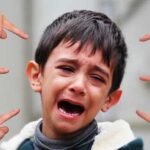According to data pulled through surveys conducted among school children of the age group 12 to 18, 25% admitted to being bullied in school. Classrooms are the battlegrounds for bullying in schools. By natural order, some students in the class are better in terms of intellectual ability, and physical prowess. If you look at the definition of bullying, it clearly states that there has to be a superior-inferior dynamic when it comes to bullying. What’s more, bullying is not something limited to the bully and the bullied. Bystanders who are watching someone being bullied in school are not isolated or removed from this.
Psychological counseling is a must for bullies, and the bullied. Schools, especially tier I and II schools, have appointed a resident psychological counselor to handle such issues in the context of a classroom. professional psychological counselors categorize bullying into four types: physical, verbal, cyber and relational. As the names indicate, physical bullying is about hitting or physically intimidating someone. Verbal bullying is abusing or humiliating someone through the spoken word. Cyberbullying is targeting someone online, through social media networks like Facebook or Twitter. Relational bullying is spreading rumors about the target, or encouraging others not to socialize with them.
The right way to stand up against bullying
Students are often in one category of bullying or the other. Students need to be told that what they are doing may be giving them a sense of momentary high, but such a state of mind is only temporary. Bullying someone never establishes someone as a superior human being, in any form or the other. So, their efforts are actually damaging their own personalities and destroying sympathy and empathy, which are natural feelings in a human being. Often, students may not be natural bullies but they display bullying behavior because they feel that it can act as a defense mechanism against being bullied. It is a complex web.
Psychologists working with school children have often unearthed diverse reasons for their bullying. Reasons range from parental bullying suffered from home to inherent mental disorders that require essential parent-child counseling. Ignoring bullies can lead them to substance abuse or other forms of increased unacceptable behavior. The bullied suffer from severe depression and paranoia. All planks of bullying can have devastating effects on children. So professional psychologists need to step in as early as possible to stop this kind of behavior from affecting anyone irreversibly.

